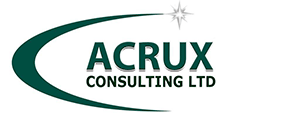Mediation
MEDIATIONS
MEDIATIONS
Impartiality in Workplace Conflict Resolution
The Mediation Process
"Mediation is a process in which an impartial and independent third party facilitates communication and negotiation and promotes voluntary decision making by the parties to a dispute to assist them to reach a mutually acceptable solution." The MII.
Acrux Mediation Services
Generally mediation can provide a confidential, effective and timely process to resolve a dispute. Our lead Mediator Gerry Rooney is experienced in providing mediation services in workplace, commercial and community disputes.
As one of Ireland’s leading workplace mediators Gerry has mediated disputes across all sectors in Ireland, has trained 100s of mediators including Equality Officers of the Equality Tribunal, and has mediated, presented and trained mediators in the UK, the USA and South America. As serving President of the Mediators’ Institute of Ireland, Gerry has played a lead role in the development of professional mediation standards in Ireland over the past 14 years.
Advantages of Mediation over Litigation
There are a number of advantages to settling disputes by mediation rather than going to court.
01
PRESERVING RELATIONSHIPS
Many workplace and business disputes are well suited to mediation. There is usually a need for an on-going relationship between the parties, (e.g. manager/employee; peer to peer, customer/supplier, and service user/provider). The focus is to achieve a mutually satisfactory settlement which creates a win-win opportunity unlike in adjudications, arbitrations, court proceedings and expert determinations. The speed of a mediation helps maintain the relationship before the dispute escalates, and more creative resolutions may be available than are available to a judge, arbitrator or expert.
02
SPEED
A mediation can be organised within days and usually concludes within one day so a solution can be achieved quickly and with less expense than a more adversarial processes. Compared to a tribunal or court, which often can take at least a year for a matter to reach trial and judgment, not to mention appeals. Also, litigation can be very stressful where an earlier resolution by settlement through mediation can avoid months of uncertainty and worry. (REWRITE)
03
COST
Attending a one day mediation is less expensive than taking a matter to trial. Mediation will likely not just reduce the legal costs, but also the cost of valuable time and energy, which can be more profitably used to benefit the business than litigation. Parties need to bear in mind that the costs of going to trial can often dwarf the amount in dispute. Mediation provides an opportunity to settle before costs become disproportionate.
Apart from some investment in time and costs, parties have nothing to lose by referring their case to mediation. If it is unsuccessful, they simply carry on with their litigation using formal procedures. The timing of the mediation is very important but the longer it is left, the more likely costs will be incurred, which could be a barrier to a settlement.
04
CONFIDENTIALITY
Mediation is confidential, indeed in many cases it is not even apparent that a mediation has taken place. This helps in settling disputes without publicising the dispute to other parties. Also a mediated settlement does not give rise to a precedent for future, similar disputes.
05
CREATIVE SOLUTIONS
The mediation process, by its very nature, can facilitate more creative solutions because it gives the parties the opportunity of finding a solution that works for them as opposed to a purely legal one.
06
HIGH SUCCESS
Research from a multiple of sources (CIPD, the MII, CEDR) indicate around 86% of all mediated cases result in a successful outcome, with 75% of cases being settled in one day of mediation.
07
CHOICE OF MEDIATOR
Parties are free to choose their mediator, and it can be helpful at times to choose a mediator who is experienced in the sort of dispute with which they are dealing. At Acrux Consulting we can find the right Mediator for your dispute where our mediators are fully trained, are accredited by the MII, are insured and have sufficient expertise.
08
RETENTION OF CONTROL
The parties themselves play a key part and will make the decision whether to settle or not. If they feel the process is not working, they may leave mediation at any time, although the mediator will strenuously try to keep the discussion going if there seems to be any prospect of a deal being done. Most mediation agreements will require the parties to engage in the process in good faith. The parties are central to the mediation and are involved throughout. This can be a very different experience to a formal tribunal, adjudication, investigation or court process. And in that regard it can be challenging for the parties. Our mediators therefore work with the parties individually in the first instant to assist them get the most out of the mediation process.
The parties can also suggest ways that may help to push the mediation along, and a skilled mediator will work with the parties in a balanced way to assist them reach an agreement that is suitable for them.
Legal Representatives
Depending on the nature of the dispute, parties can bring their legal or other representatives to the mediation session. We are happy to work with and encourage your legal or other representative to participate in the process if appropriate.
Typically we assist the parties resolve their dispute over two to three meetings.
Mediators report that just over 75% of their cases settle on the day, with another 11% settling shortly thereafter to give an aggregate settlement rate of around 86% (CEDR and Civil Mediation Council, 2014). Our approach to mediation has ensured settlement outcomes consistent with these trends, although there can be no guarantee of a resolution to a dispute in mediation.
Gaining Understanding
However, it is important to note that just because a mediation does not settle on the day (or soon afterwards), it does not mean that it was not a ‘success’. Taking part in a mediation enables the parties get a better understanding of their and the other party’s arguments and assess the strength of their own and the other side’s case. Even if only some points can be agreed, this helps to narrow the dispute and will likely reduce the time and money to be spent in any formal legal process both before and at hearing, tribunal or trial.
A mediation process is more than just “normal negotiations”. The process has evolved over many years to offer the parties the opportunity, with the benefit of our skilled and experienced mediators, to safely explore and analyse their dispute. This takes place under complete confidentiality which is respected by the tribunals and courts. Mediated resolutions can be drafted into legally binding agreements, and our approach facilities this outcome if required.
Our Mediation Approach
We apply a facilitative approach to our mediation services, where we work closely and in a respectful way with all the parties to assist them find a resolution to their dispute.
Following an initial free consultation with a client we apply a five stage approach
which includes:
Preparation:
Pre one to one confidential meetings with each of the parties, drafting an agreement to mediate and establishing appropriate ground rules for the mediation.
Introduction:
Opening session with the parties usually in plenary session
Identifying the issues:
conflict mapping to help the parties identify their needs and wants, and assist the parties understand the positions and issues at stake
Problem solving:
Working with the parties in open sessions, or on a one to one basis in caucus, to assist them identify and work through possible solutions.
Agreement:
Drafting heads of agreement or memos of understanding which enables the parties reach lasting and if appropriate binding agreements.

Commercial/Business Mediation
Commercial/Business Mediation can address disputes such as:
Shareholder disputes
Conflicts of interest
Oppression of a minority shareholder
Customer and client difficulties
Consumer disputes
Bad debts
Financial restructuring
Breach of contract
Family business disputes
Succession planning
Small claims
Professional negligence
Unpaid fees
Conflicts of interest
Oppression of a minority shareholder
Customer and client difficulties
Consumer disputes
Bad debts
Financial restructuring
Breach of contract
Family business disputes
Succession planning
Small claims
Professional negligence
Unpaid fees
Property Mediation
Property Mediation can address disputes such as:
Service charges
Dilapidations
Break notices, rent reviews, lease renewals
Rent arrears
Possession actions
Boundary disputes
Rights of way/trespass
Planning disputes
Construction disputes
Building disputes
Share of ownerships of property
Insurance disputes and claims
Community Mediation
Community Mediation can address disputes such as:
Neighbour disputes
Antisocial behaviour
Boundary issues
Sports/Social club in-house difficulties
Acrux - Providing a confidential, effective and timely process to resolve a dispute
Conducting a professional mediation to reach a mutually acceptable solution by all parties
We Stand By Our Record
We are confident we can work with you and find the right solution and deliver it in a professional, confidential and thorough way.
Satisfaction Guaranteed for Employers
Over 20 years
Experience helping clients worldwide
+900
Workplace Investigations successfully completed
+300 mediations
Consult with us on employee relations
12 experts
International affiliates and partnerships
Make Enquiry
Sound advice is based on years of training, hard work, and passion, as well as familiarity with employment legislation & precedent and sound consideration. You’ll find all that and more at Acrux Consulting.
Acrux Enquiry Form
Thank you for contacting Acrux Consulting.
We will get back to you as soon as possible
Oops, there was an error sending your message.
Please try again later
Please try again later
About Us
Human Resources, Dispute Resolution, Learning and Development, and Organisational Development.
© 2024
All Rights Reserved | Acrux Consulting Ltd

